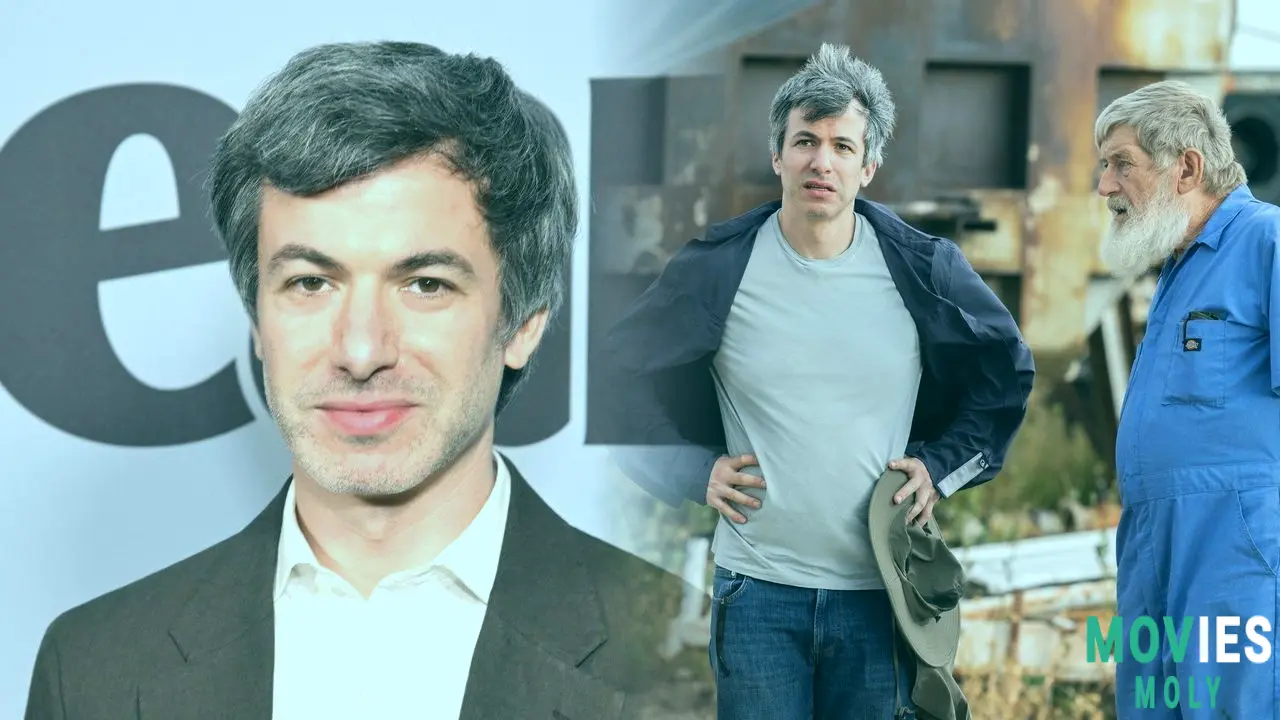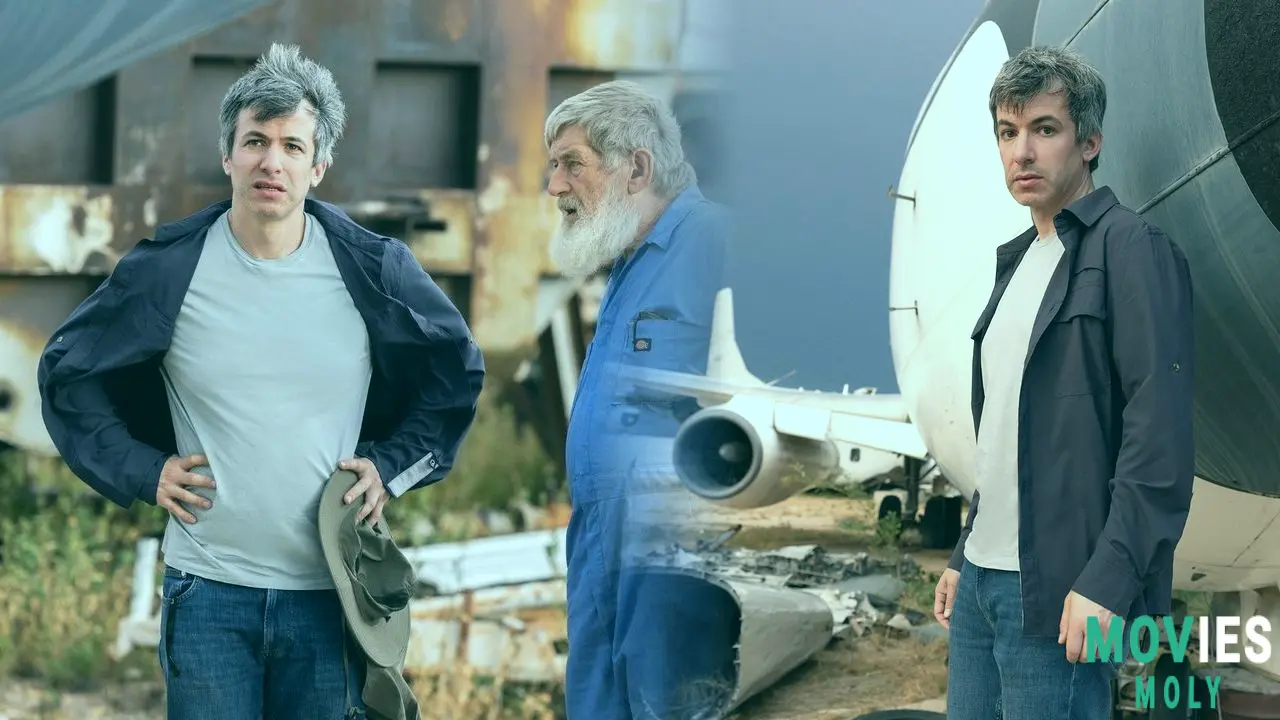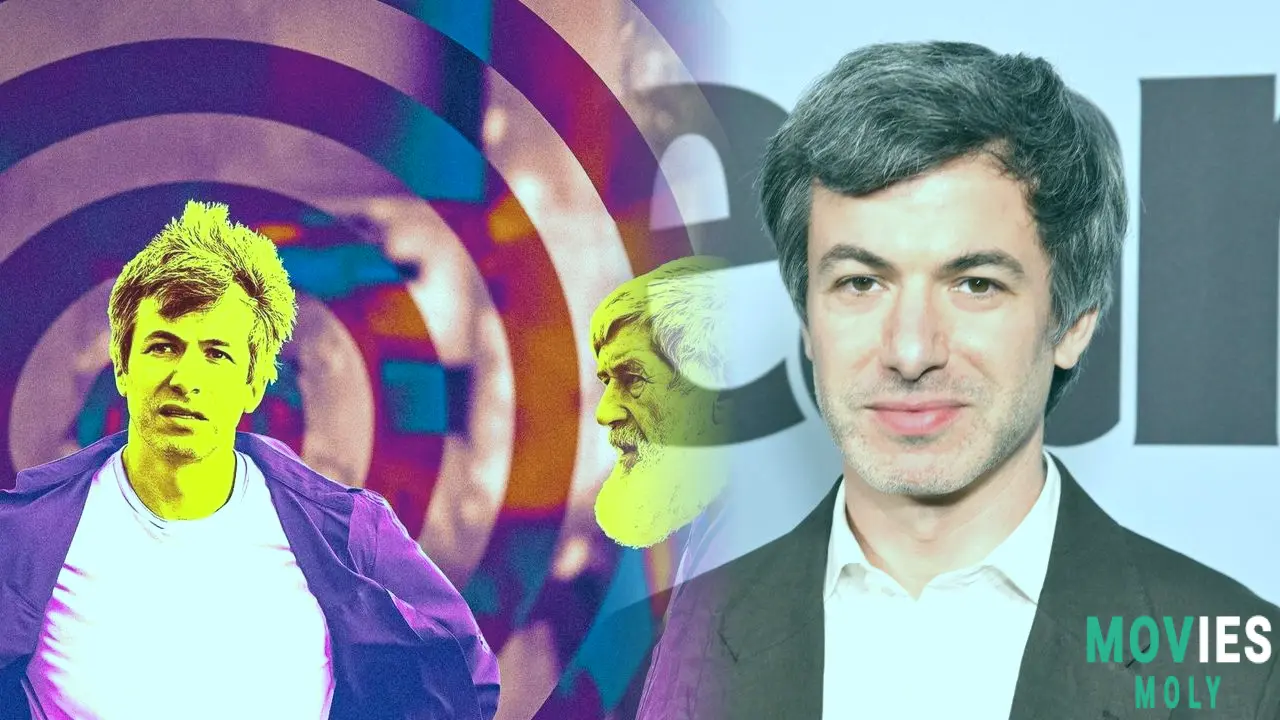Watching Nathan Fielder’s shows always leaves me with a lot of thoughts. His new season of The Rehearsal, which just finished, certainly kept that feeling going. This show is a mix of a comedy, a reality program, and a deep look at how we see ourselves versus how we act in the world. It mixes fake and real into something that feels truly unique. The Rehearsal is full of contradictions. It talks about how unreal our world can feel but it might be the most real show on TV because of it.
Fielder already had a reputation for playing with the line between what is real and what is not. In his earlier show, Nathan for You, he acted like an MBA graduate from Canada. He pretended to help real small businesses that were struggling. His appearances on late-night shows to promote that series were always very absurd. With The Rehearsal, he came up with a way to help people get through awkward talks. He suggested they rehearse them. The first episode, which came out in 2022, did not fully prepare us for how wild this show would get.
In that first season, Fielder found a man who had lied about having a master's degree. This man wanted to tell his trivia teammate the truth. To help him, Fielder hired actors to pretend to be the teammate. They went through many different situations to create a kind of comedy flow chart. But Fielder did more than just that. He built an exact copy of the trivia team’s bar, right down to the spices on the table. He wanted to make sure the situation felt real. He even had actors shadow the real people they were playing to make it more believable. Fielder took things even further. He built a replica of the trivia player’s apartment. He hired an actor to copy the trivia player. This was so Fielder’s own pitch would feel more polished. This level of going deeper and deeper into the fake felt truly wild, almost like a reality TV version of Charlie Kaufman’s Synecdoche, New York.
The Shocking Pilot Training And Unexpected Real-World Reactions To Nathan Fielder's ShowHow Nathan Fielder's Dedication Led To A 737 Flight And Strong Opinions From The FAA
The second season of The Rehearsal focused on a new goal. Fielder became obsessed with plane crashes caused by pilots not communicating well. He found that often junior pilots were afraid to speak up when their captain made a bad decision. This could put the aircraft in danger. The show recreated many dysfunctional talks between pilots right before their planes crashed. Fielder calmly watched these reenactments from outside the cockpit. He typed on a laptop like a concession worker at an old movie theater. As a journalist who often writes about aviation safety, I am very aware of how serious real air crashes can be. It made me wonder if Fielder’s over-the-top solutions could actually fit the seriousness of the problem.
Fielder began this season by pointing out what he believes is a big problem in aviation: pilots not being able to talk clearly in a crisis. He met with John Goglia, a former member of the National Transportation Safety Board. Fielder showed him a report that suggested the FAA should require pilot training to include role-playing. This would teach junior officers to speak up. The FAA did not take this idea. Goglia told Fielder that for some reason, they are "just not going there." Fielder suggested that with HBO’s money and platform, he could restart the idea and maybe save real people from dying.
My first reaction to Fielder’s project was doubt. Aviation is a huge and complicated business. Many smart people work hard to think about every safety issue. This show had Fielder dressed as a baby Sully, getting his diaper changed by a giant mom puppet. It seemed to make no sense that a comedy show could say anything important about preventing accidents. But then I started talking to experts. Mark Noort, a professor who studies organizational psychology and has looked into cockpit communication problems, was stunned by the show. He said that the opening scenes showing real crash transcripts "really struck a nerve." He was impressed that Fielder found such a specific and important issue that only a few experts know about. He also highlighted ways to fix it that experts already said could work.
The shocking part for many viewers came when it was revealed that Fielder had spent two years getting his commercial pilot license. This allowed him to fly a full plane of passengers, who were actors, on a Boeing 737. Some fans even found Fielder in the FAA database and looked up his flight. Fielder later criticized the FAA. He called them "dumb" for their response to his show. When a CNN host read a statement from the FAA saying they were not seeing data to support Fielder’s claim that pilot communication is to blame for airline disasters, Fielder simply said, "That’s dumb. They’re dumb." He explained that pilot training often involves just a PowerPoint slide telling co-pilots to speak up. He believes this does not make the lesson stick emotionally.
The Personal Stories That Drove The Rehearsal's Second Season

How Real-Life Tragedies And Fielder's Own Experiences Made The Show Deeper Than Comedy
Fielder explained his long-standing interest in commercial aviation disasters. He has been fascinated by crash investigations for almost 20 years. He noticed that investigators are good at fixing technical problems. But the human factors, like communication, seemed to keep causing problems again and again. He would often bring it up to friends as a conversation starter. He was interested in how one person might see a problem, but another sees it differently. The person with the better idea might be afraid to speak up.
This season became even more personal because of Amy Gravitt, HBO’s head of comedy. Her father and brother were Navy pilots. Sadly, her brother Michael died by suicide in 2023. He had struggled with mental health issues that ended his career as an airline pilot. Gravitt told Rolling Stone that Michael could not get into a simulator for training one day. He had done it countless times before. She said he felt he could not talk to anyone about it. Michael's death happened while Gravitt was working on the second season of The Rehearsal. This made the show’s topic of pilot communication and mental well-being incredibly important to her.
Fielder was nervous to send episodes to Gravitt, especially numbers three and six, knowing what she had gone through. He even offered to stop the season if she was too uncomfortable. But Gravitt felt that not doing the show would be like ignoring the very conversations people need to have. She found relief watching pilots on the show able to talk to Fielder’s staff, even if it was outside standard mental health support. This showed the show's honesty, which can feel missing from other self-aware productions about screen-mediated life, like Bo Burnham’s Inside.
Beyond The Laughs: The Rehearsal's Deeper Exploration Of Human Behavior

From Fake Autism Diagnoses To The Infamous Baby Sully Scene And Its Meaning
The show also played with the idea that Fielder might be autistic. People have talked about this theory for a while. Fielder used it in the show by trying to get a congressional hearing on pilot communication. When he found out a key congressman was on both the aviation safety committee and an Autism Caucus, Fielder joined an autism advisory board. He even got an MRI of his brain but did not get the results until after his 737 flight. He clicks off a voicemail message before hearing the details. This was a way to talk about being your true self and how people judge others. He said it was an interesting way to describe what might be happening with the acting parts, the ability to be true to yourself or not, and how people tend to judge others.
The famous "Baby Sully" scene where Fielder, dressed in a diaper, is held by a giant puppet mother, was also a highlight. Fielder admitted that he did feel like a mom was holding him and that it was cozy. He said these visual illusions sometimes work better than you would think. This scene and others like it, including one where he struggles to breastfeed oat milk from the puppet, show how the show pushes boundaries. It makes you wonder how something so ridiculous can also make you think about very serious topics.
Ultimately, The Rehearsal is not just about making the Federal Aviation Administration change its rules. It is more about getting people to trust themselves and their feelings. It is about being more assertive. Whether you need to practice with an actor to get that assertiveness is up to you. The show uses comedy to draw attention to a topic that most people would never think about. It makes you question how much of what you see is real and how much is constructed. But in doing so, it holds up a mirror to our own lives and how we navigate them. This is why The Rehearsal stays with you long after the final credits roll.



